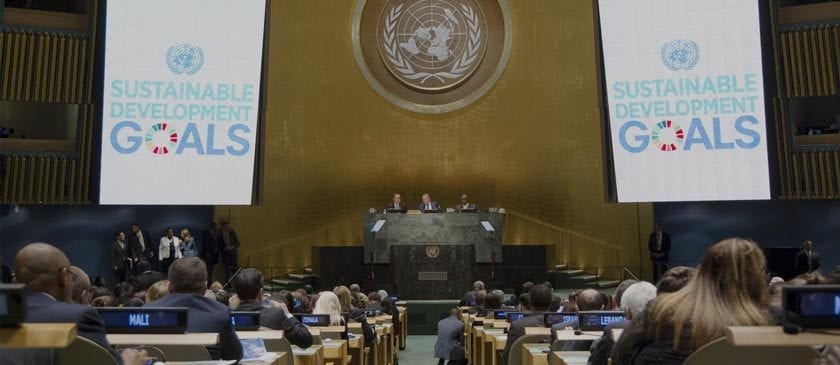
The Sustainable Development Goals (SDGs) define global sustainable development priorities and aspirations for 2030 and seek to mobilize global efforts around a common set of goals and targets.
The SDGs call for worldwide action among governments, business and civil society to end poverty and create a life of dignity and opportunity for all, within the boundaries of the planet.
Unlike their predecessor, the Millennium Development Goals, the SDGs explicitly call on all businesses to apply their creativity and innovation to solve sustainable development challenges. The SDGs have been agreed by all governments, yet their success relies heavily on action and collaboration by all actors.
The SDGs present an opportunity for business-led solutions and technologies to be developed and implemented to address the world’s biggest sustainable development challenges.
As the SDGs form the global agenda for the development of our societies, they will allow leading companies to demonstrate how their business helps to advance sustainable development, both by minimizing negative impacts and maximizing positive impacts on people and the planet.
Covering a wide spectrum of sustainable development topics relevant to companies – such as poverty, health, education, climate change and environmental degradation – the SDGs can help to connect business strategies with global priorities. Companies can use the SDGs as an overarching framework to shape, steer, communicate and report their strategies, goals and activities, allowing them to capitalize on a range of benefits such as:
Identifying future business opportunities
The SDGs aim to redirect global public and private investment flows towards the challenges they represent. In doing so they define growing markets for companies that can deliver innovative solutions and transformative change.
Enhancing the value of corporate sustainability
Whilst the business case for corporate sustainability is already well established, the SDGs may for example strengthen the economic incentives for companies to use resources more efficiently, or to switch to more sustainable alternatives, as externalities become increasingly internalized.
Strengthening stakeholder relations and keeping the pace with policy developments
The SDGs reflect stakeholder expectations as well as future policy direction at the international, national and regional levels. Companies that align their priorities with the SDGs can strengthen engagement of customers, employees and other stakeholders, and those that don’t will be exposed to growing legal and reputational risks.
Stabilizing societies and markets
Business cannot succeed in societies that fail. Investing in the achievement of the SDGs supports pillars of business success, including the existence of rules-based markets, transparent financial systems, and non-corrupt and well-governed institutions.
Using a common language and shared purpose
The SDGs define a common framework of action and language that will help companies communicate more consistently and effectively with stakeholders about their impact and performance. The goals will help bring together synergistic partners to address the world’s most urgent societal challenges.
Business is a vital partner in achieving the Sustainable Development Goals. Companies can contribute through their core activities, and we ask companies everywhere to assess their impact, set ambitious goals and communicate transparently about the results.
For further information and assistance regarding the Sustainable Development Goals see SDGs or contact us.
Source: SDG Compass http://www.sdgcompass.org/
